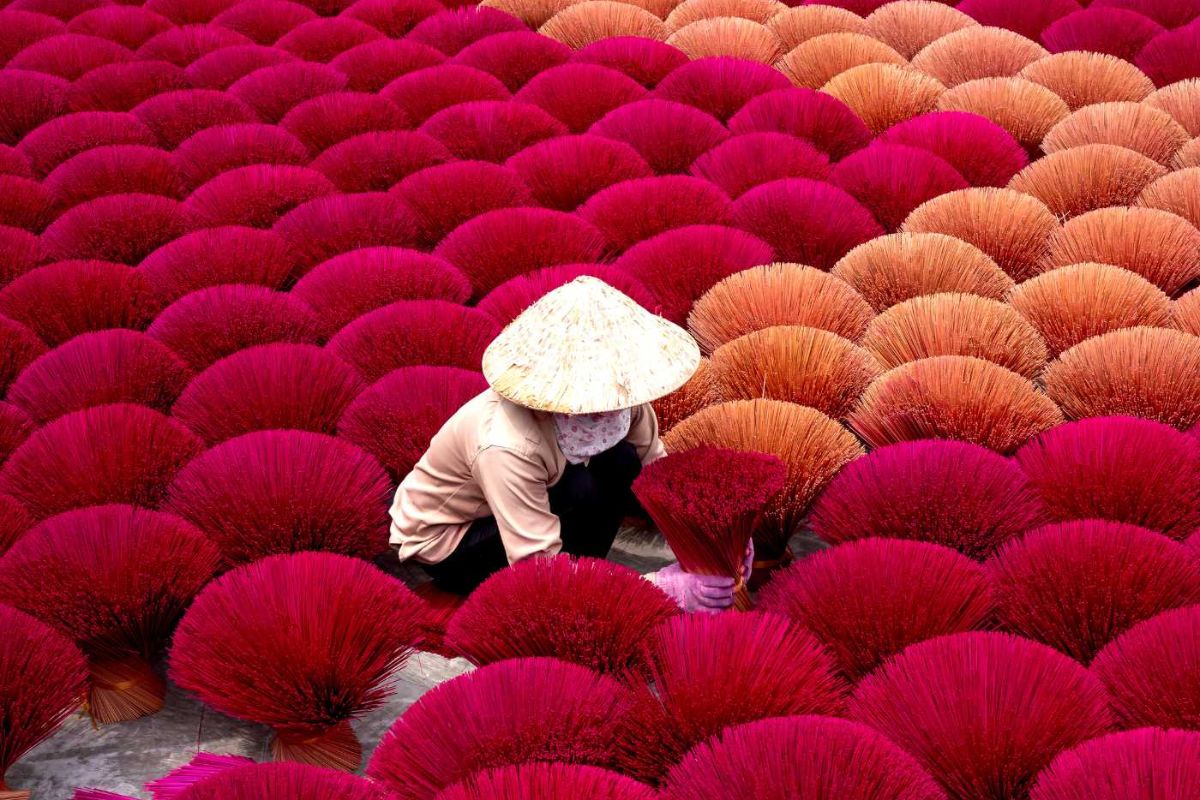TABLE OF CONTENT
Vietnamese cuisine is a vibrant tapestry of flavors, textures, and aromas, woven from a rich history and diverse cultural influences. From the bustling street food stalls of Hanoi to the sophisticated dining experiences in Ho Chi Minh City, Vietnamese food offers a unique and unforgettable culinary adventure. But what makes Vietnamese cuisine unique? Let’s embark on a journey to uncover the secrets behind the flavors that have captivated food lovers around the world.
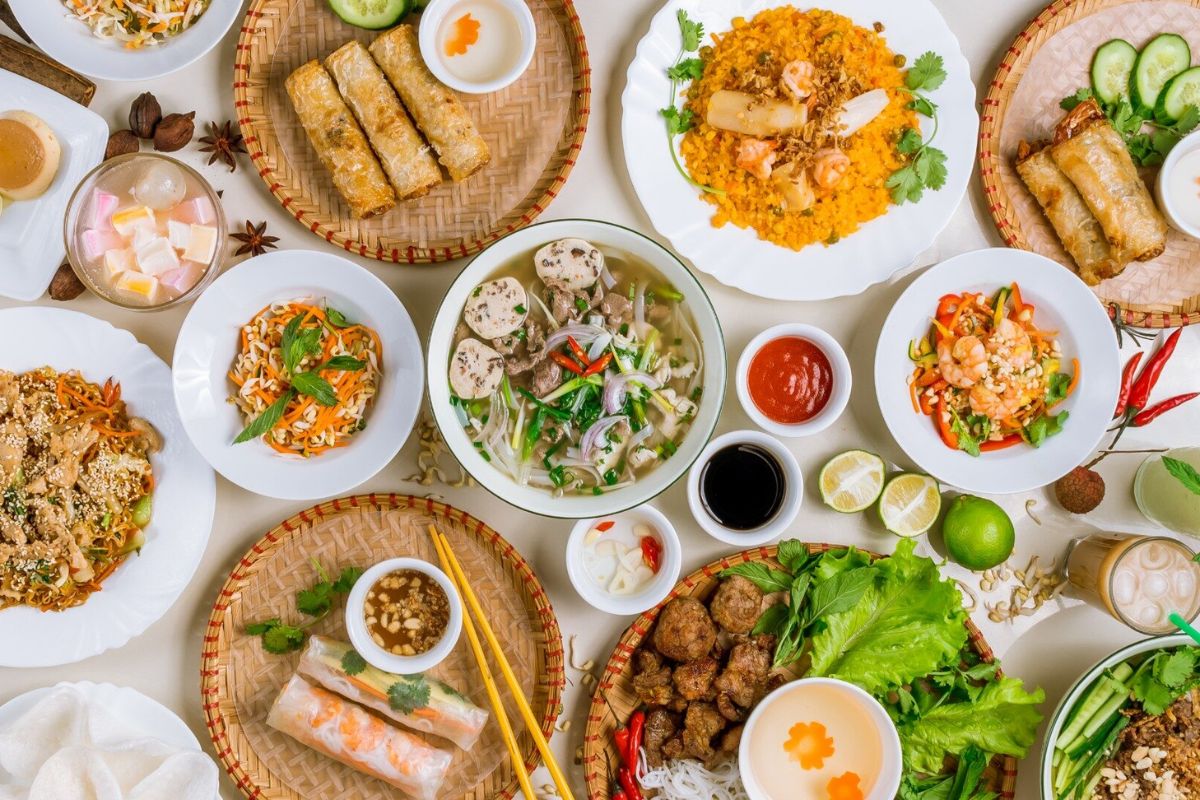
Overview of Vietnamese cuisine
Vietnamese cuisine is renowned for its fresh ingredients, balanced flavors, and healthy dishes. It’s a cuisine that harmoniously blends sweet, salty, sour, and spicy elements, creating a symphony of taste in every bite. With an emphasis on fresh herbs, minimal use of oil, and a balance of meats and fresh vegetables, it’s no wonder Vietnamese food is often celebrated for being both delicious and nutritious.
But there’s more to it than just taste. Vietnamese cuisine is a reflection of the country’s history, geography, and cultural diversity. Each region of Vietnam brings its own unique spin to the table, influenced by local ingredients, traditions, and external cultural exchanges.
What makes Vietnamese cuisine unique?
Vietnamese cuisine stands out for several reasons. Its emphasis on fresh herbs and vegetables, the balance of flavors in each dish, and the influence of various cultures throughout history all contribute to its distinctiveness. Let’s delve deeper into these aspects to understand what makes Vietnamese cuisine unique.
Historical and cultural influences
The uniqueness of Vietnamese cuisine is deeply rooted in its history. Vietnam’s long history of foreign occupation and cultural exchange has left an indelible mark on its culinary traditions. The thousand-year Chinese rule introduced stir-frying techniques, noodles, and the use of chopsticks. This influence is still evident in many Vietnamese dishes today.
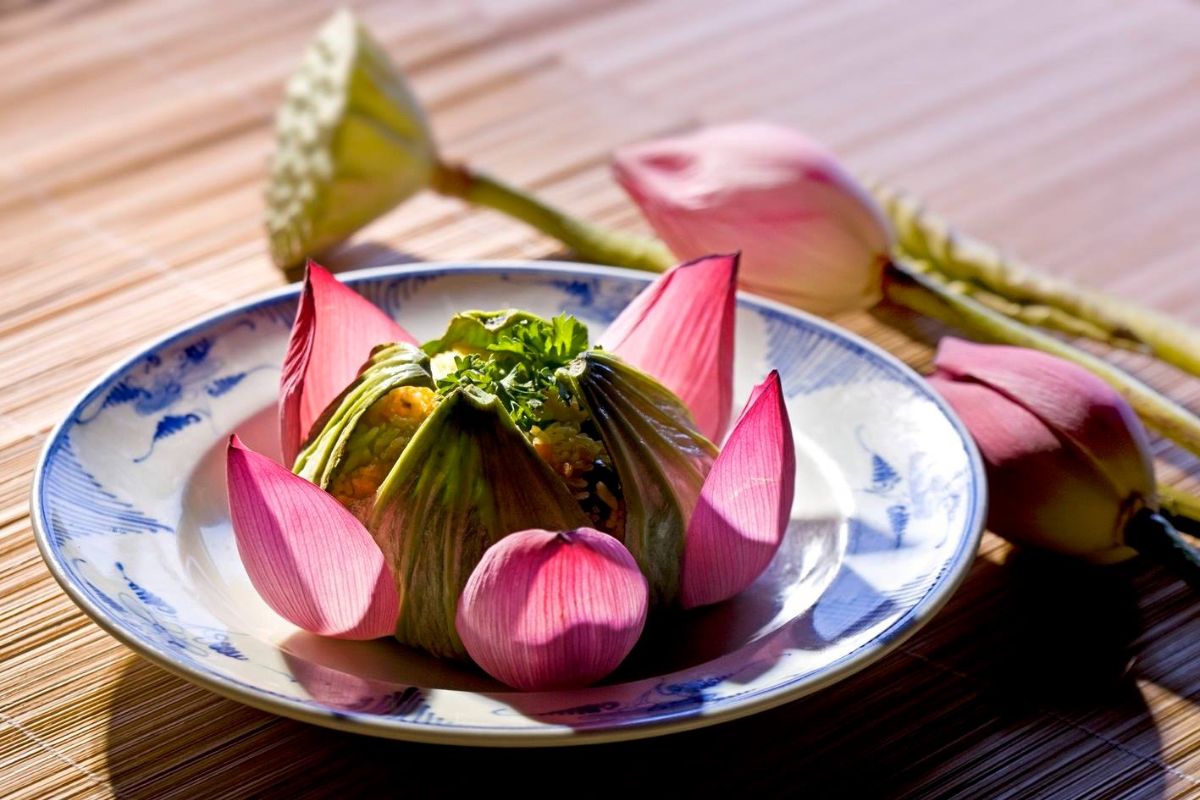
The French colonial period in the 19th and 20th centuries brought new cooking methods and introduced baguettes, pâté, and coffee to Vietnam. The iconic banh mi sandwich, with its crispy baguette, is a prime example of this fusion. The French also introduced beef to Vietnamese cuisine, leading to the creation of pho, now considered Vietnam’s national dish.
What makes Vietnamese cuisine unique is its ability to absorb these foreign influences while maintaining its own identity. Rather than simply adopting foreign dishes, Vietnamese cooks adapted them, creating something entirely new and distinctly Vietnamese.
Key ingredients and flavors
One of the most striking aspects of what makes Vietnamese cuisine unique is its use of fresh herbs and vegetables. Unlike many other cuisines where herbs are used sparingly as garnishes, in Vietnamese cooking, herbs are often used in large quantities as main ingredients. Common herbs like basil, mint, cilantro, and lemongrass add layers of flavor and aroma. Spices such as star anise, cinnamon, and ginger are used not just for their taste but also for their health benefits.
Another key and the most iconic ingredient that sets Vietnamese cuisine apart is fish sauce or nuoc mam. This pungent, salty liquid is used in virtually every Vietnamese dish, either as a cooking ingredient or a dipping sauce. Its umami flavor adds depth and complexity to Vietnamese food.
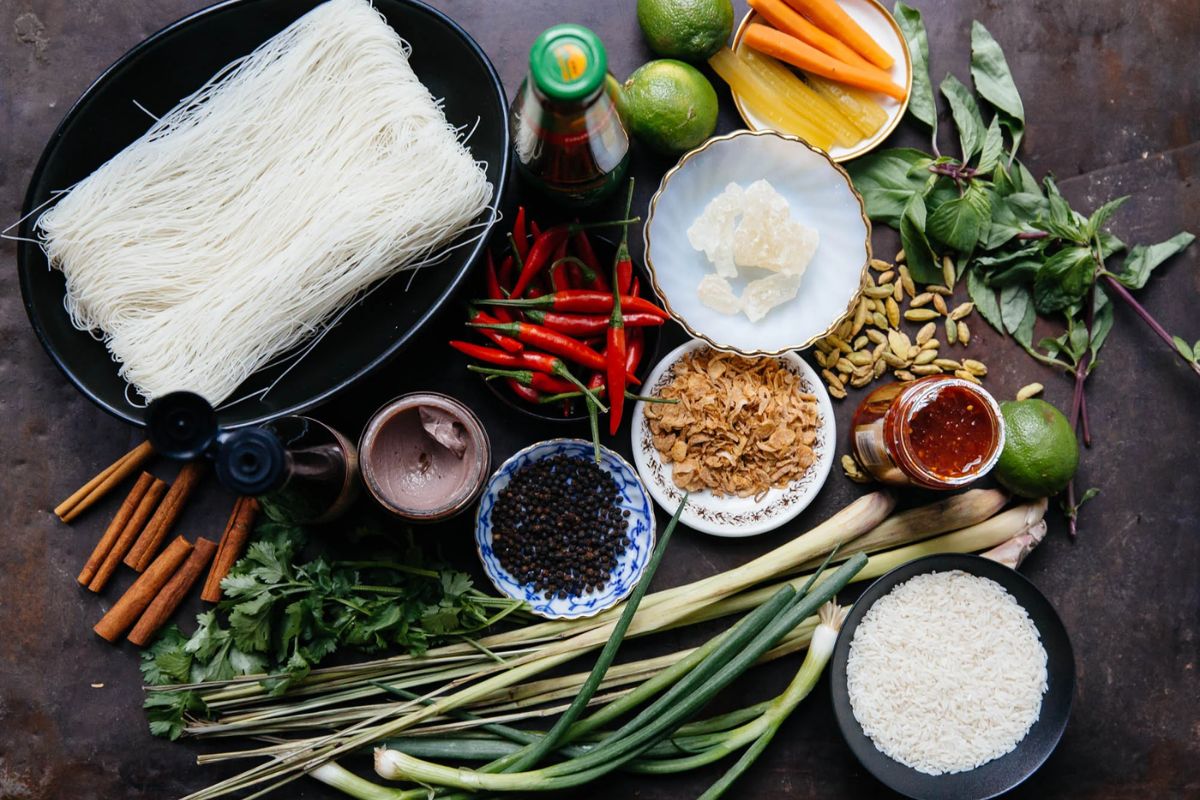
Rice and rice-based products are also central to Vietnamese cuisine. From steamed rice to rice noodles, rice paper, and rice flour, these ingredients form the backbone of many Vietnamese dishes.
What truly makes Vietnamese cuisine unique is its commitment to balancing flavors. Each dish aims to incorporate elements of sweet, sour, salty, umami, and sometimes spicy. This balance creates a harmony of flavors that is both satisfying and addictive.
Cooking techniques
What makes Vietnamese cuisine unique in terms of cooking techniques is the emphasis on preserving the natural flavors of ingredients while creating complex, layered tastes. Common methods include broiling, steaming, and frying, often with minimal use of oil. Clay pots are frequently used to cook stews and braised dishes, which allows for slow cooking that enhances the flavors.
Street food culture is a significant part of Vietnamese life, with vendors expertly preparing dishes right in front of you. The sizzling sound of banh xeo (Vietnamese pancakes) frying on a hot skillet or the fragrant steam rising from a pot of pho broth are sights and sounds that define the Vietnamese culinary experience.
Regional variations
Vietnam’s geography, stretching over 1,000 miles from north to south, has led to significant regional variations in cuisine. This diversity is another factor in what makes Vietnamese cuisine unique. Northern Vietnamese cuisine, influenced by its proximity to China, tends to use less spice and sugar. Dishes like phở originated in this region and are typically simpler and clearer in flavor than their southern counterparts.
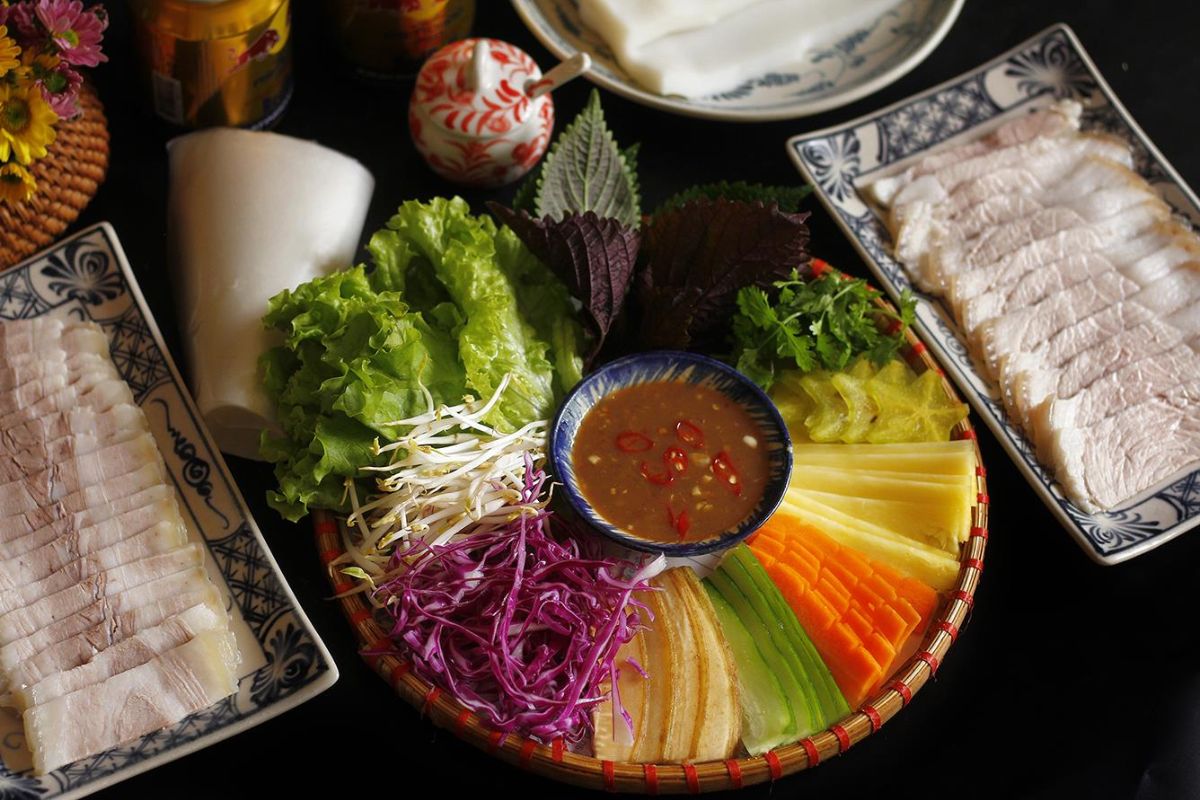
In contrast, Central Vietnamese cuisine is known for its spiciness and complex flavors. The imperial cuisine of Hue, the ancient capital, is particularly renowned for its elaborate presentation and use of exotic ingredients. Central dishes often incorporate a lot of chili and shrimp paste, resulting in vibrant and fiery tastes.
Southern Vietnamese cuisine is characterized by its use of fresh herbs, vegetables, and a sweeter palate. The warm climate and fertile lands of the Mekong Delta region provide an abundance of fruits and vegetables, which are often featured in dishes. The famous bánh xèo (crispy pancakes) and hu tieu (rice noodle soup) are southern staples.
Signature dishes
When discussing what makes Vietnamese cuisine unique, it’s impossible not to mention its signature dishes. These iconic foods embody the essence of Vietnamese culinary philosophy and have gained worldwide recognition.
Pho, a fragrant beef noodle soup, is perhaps the most famous Vietnamese dish. Its clear, flavorful broth, tender rice noodles, and abundance of fresh herbs exemplify the balance and freshness that characterize Vietnamese cuisine. It’s a comforting and nourishing meal that can be enjoyed at any time of the day.
Banh mi, a product of French colonial influence, is a Vietnamese sandwich that combines a crispy baguette with a variety of fillings like pâté, cold cuts, pickled vegetables, and fresh herbs. This fusion of French and Vietnamese elements creates a sandwich that’s crispy, tangy, and bursting with flavor.
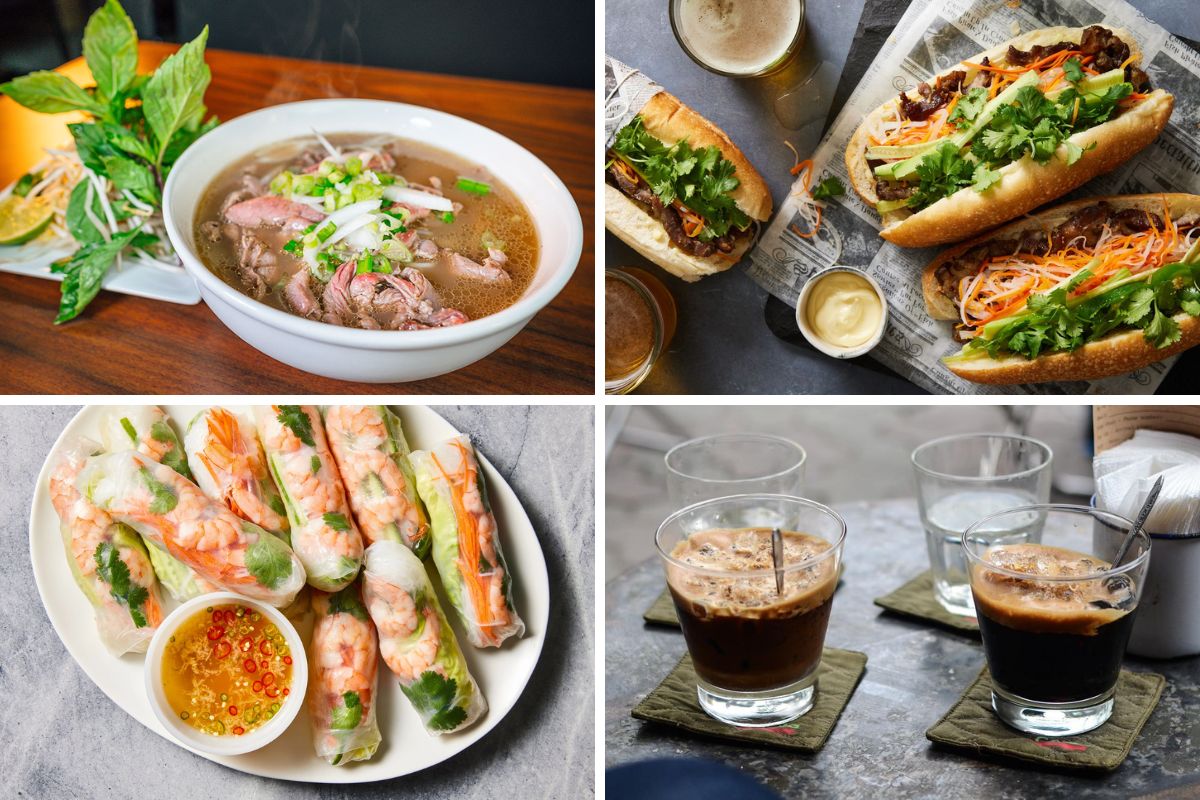
Goi cuon, or fresh spring rolls, are another beloved dish. These translucent rice paper rolls are filled with shrimp, pork, fresh herbs, and vermicelli noodles, and are often served with a savory peanut dipping sauce. They’re light, healthy, and incredibly refreshing.
Ca phe sua da, Vietnamese iced coffee, is a testament to the lasting influence of French colonialism. Strong, dark coffee sweetened with condensed milk and served over ice, it’s a beloved drink that’s gained popularity worldwide.
These signature dishes, among many others, highlight what makes Vietnamese cuisine unique: its balance of flavors, use of fresh ingredients, and ability to adapt foreign influences into something distinctly Vietnamese.
Dining culture and etiquette
The uniqueness of Vietnamese cuisine extends beyond the food itself to encompass dining culture and etiquette. Vietnamese meals are typically served family-style, with several dishes on the table, allowing diners to sample a variety of flavors and textures. Eating with chopsticks is the norm, and it’s polite to wait for the eldest person at the table to begin eating before you start.
Vietnamese dining etiquette emphasizes respect and hospitality. It’s customary to offer food to others before serving yourself, and sharing is encouraged. Meals are not just about eating but also about bonding and enjoying each other’s company.
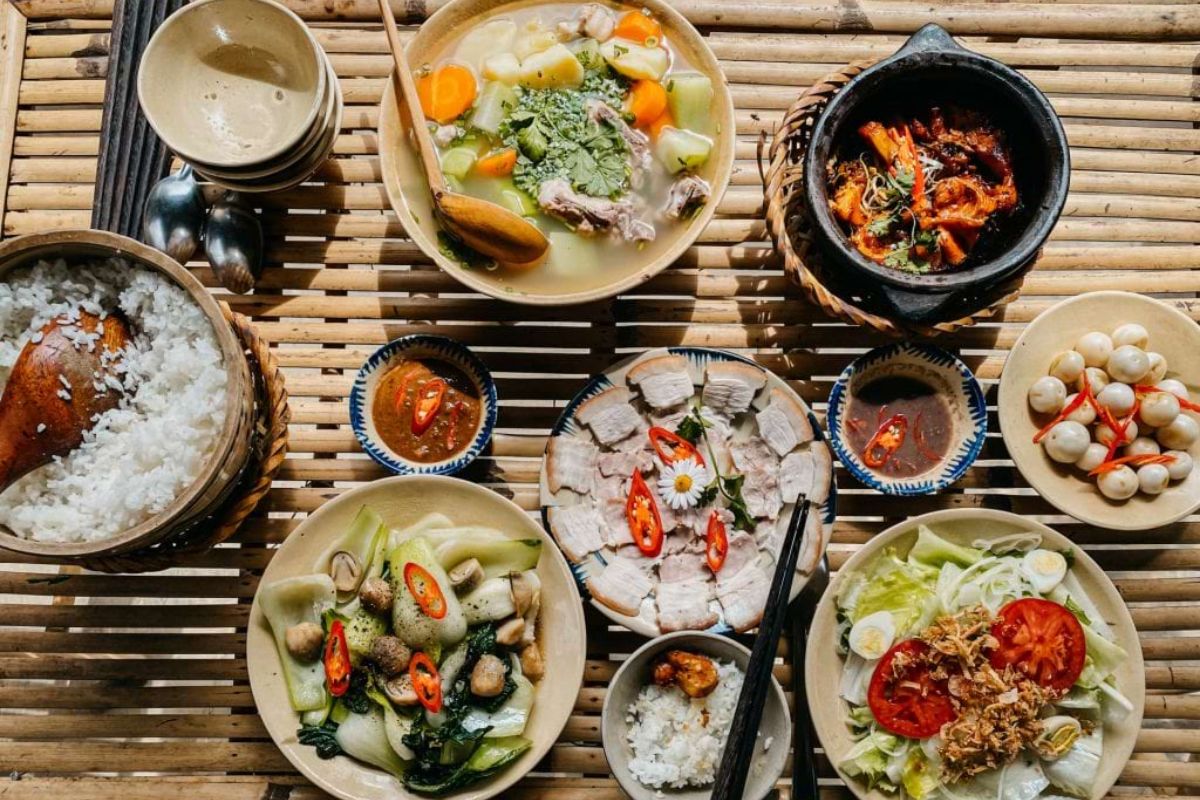
Street food culture is another aspect of what makes Vietnamese cuisine unique. From bustling markets to sidewalk stalls, street food is an integral part of Vietnamese culinary life. It’s not uncommon to see people perched on tiny plastic stools, enjoying a steaming bowl of pho or a crispy banh mi.
Global influence
The global influence of Vietnamese cuisine is a testament to its unique appeal. In recent decades, Vietnamese restaurants have proliferated around the world, introducing international diners to the joys of pho, banh mi, and other Vietnamese delicacies. The fresh, healthy, and flavorful nature of Vietnamese food has earned it a dedicated following.
What makes Vietnamese cuisine unique has also inspired chefs worldwide to incorporate Vietnamese elements into fusion cuisines. The emphasis on fresh herbs, the balance of flavors, and the use of fish sauce have found their way into dishes far beyond traditional Vietnamese fare.
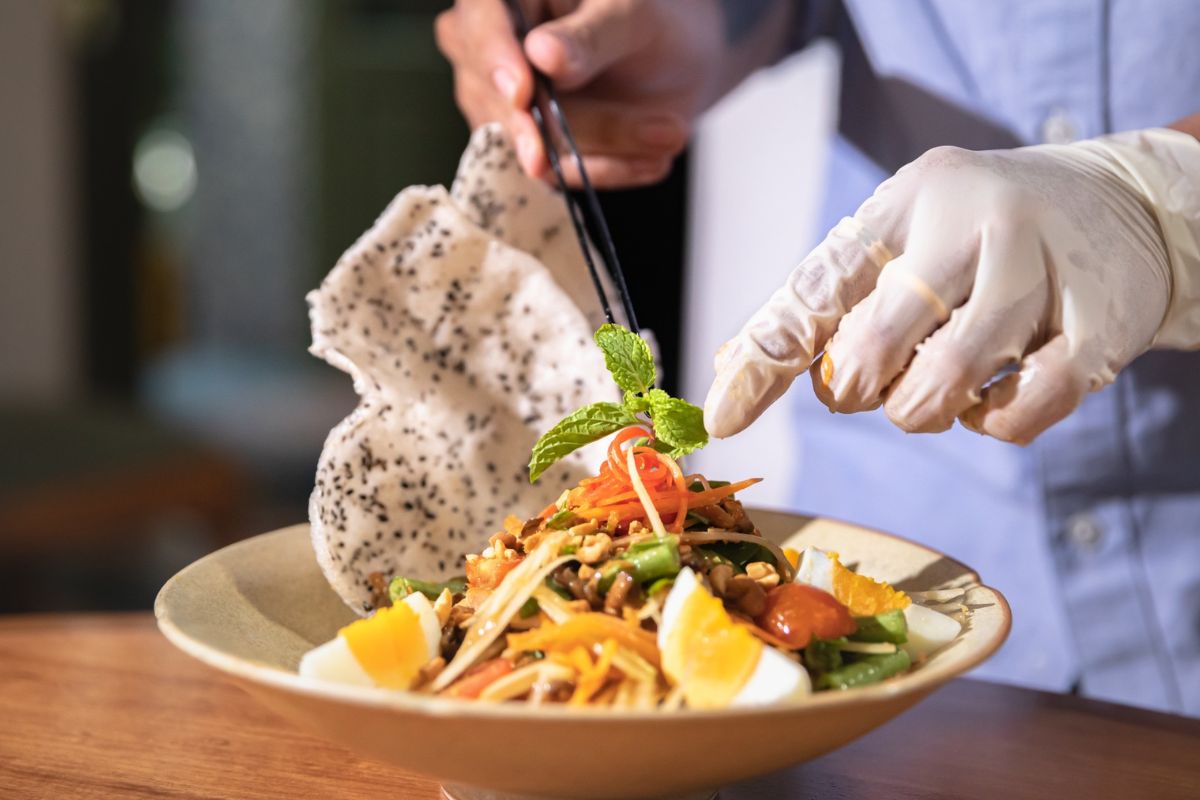
The health benefits of Vietnamese cuisine have also contributed to its global popularity. With its abundance of vegetables, minimal use of dairy and oil, and reliance on herbs for flavor, Vietnamese food aligns well with modern health-conscious eating habits.
—
Vietnamese cuisine is a celebration of fresh ingredients, balanced flavors, and cultural heritage. Its unique combination of historical influences, regional variations, and signature dishes creates a culinary experience that is both diverse and harmonious. It’s a cuisine that respects tradition while embracing innovation, that values freshness and health without sacrificing flavor, and that tells the story of a nation through its food.
What makes Vietnamese cuisine unique is its ability to tell a story – a story of resilience, adaptability, and creativity. It’s a cuisine that continues to evolve while staying true to its roots, offering endless discoveries for food lovers around the world. If you’re eager to explore the flavors of Vietnam firsthand, consider joining a Vietnamese food tour with Asia Encounter. Our personalized tours can offer a chance to taste, learn, and take you deep into the heart of Vietnamese culinary culture, making the most memorable journey!


